ThugPop's meditation
Along with NYMPH, all other content created by THUGPOP will live on his new online platform, ThugPop.farm.
Listen below.
Stay informed on our latest news!
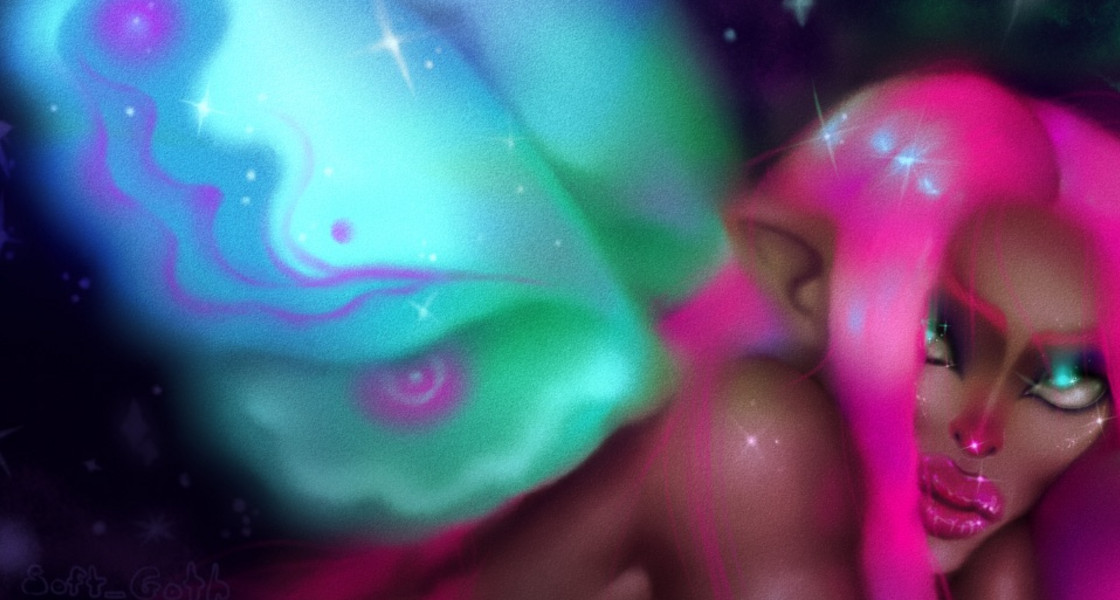
Along with NYMPH, all other content created by THUGPOP will live on his new online platform, ThugPop.farm.
Listen below.
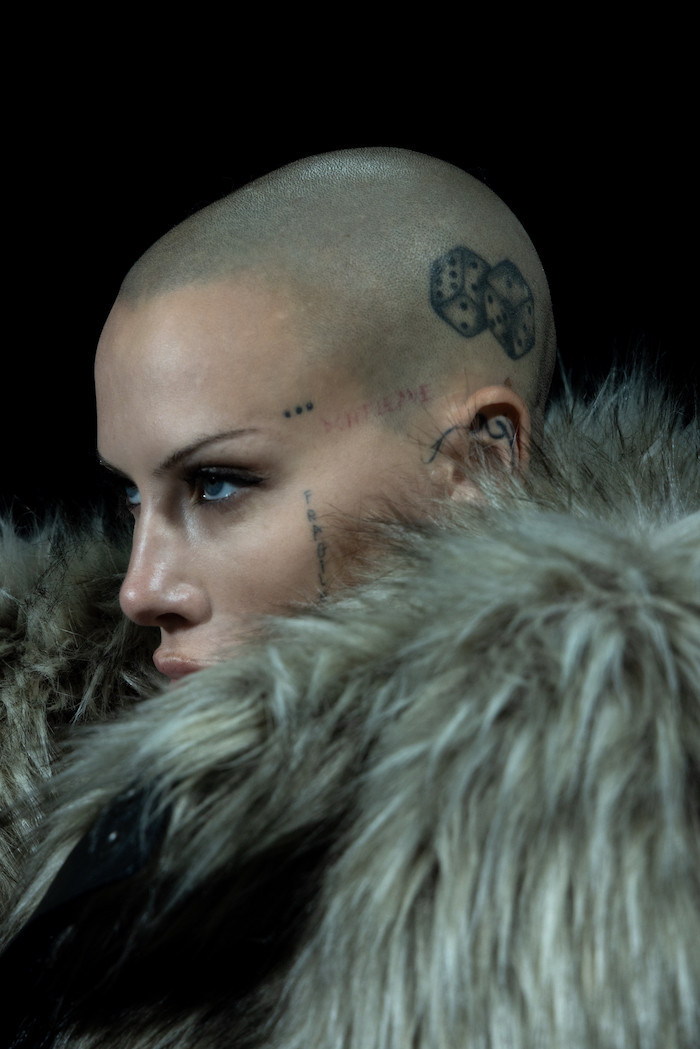
I know that your stage name stemmed from your Instagram handle, but why Siiickbrain? What does that mean to you?
I had a past of dealing with a lot of things with my mental health. At the time, I thought, 'Oh, it's a funny play on words,' because I'm sick in the head, or whatever. But it also played into the way I showed myself on the internet at the time, I wanted to embody this 'cool' persona.
I also think there's something about humor in processing things like that. Do you feel that you as Caroline and Siiickbrain are one and the same? How do you feel that you've transformed since your days before you started pursuing music, as a person but also as an artist?
It's been a huge transition. I have the opportunity to really be who I am in the city. I think Siiickbrain as an artist and Caroline as a person, they used to be so different and far in between. But now I feel like there are so many crossovers between them. Dropping this project that is so vulnerable as Siiickbrain definitely feels like there's a big crossover between my personal self, Caroline, and the artist. Of course, there's always a crossover between those personas in my music. But I always have thought of myself as more of a soft and vulnerable person. So in the past, when I've done some of my harder music with screaming and stuff, it's like I'm letting the character be that hardcore, confident type of person, rather than Caroline.
You worked as a makeup artist and you also have experience modeling. Have you always felt like creative expression, no matter what form it is, comes really naturally for you?
Absolutely. I don't feel like I'm happy or fulfilled unless I'm creatively expressing myself in some way, at all times. Even with modeling, of course, that's a creative way to express myself, but during that time period, I was writing a lot of poetry.
Did any of that poetry end up becoming songs that we've heard?
Of course. That was originally my way of getting into writing music.
And as far as writing and the whole process that you took with this EP, it's a new sonic approach — a fully acoustic project. It's kind of like a different side of your sound. Why did you decide to tap into that?
I honestly always wanted to, but my last project was really production-heavy. Even vocally, there was a lot of vocal production and screaming. It kind of took away from what I was saying, even though everything that I said was very thought out and purposeful. This time around, I took my time with the lyricism and I wrote it in a different way than I typically would. I wrote everything in my room. I just could really tap into the vulnerability and I just wanted to strip it down and show people who I really am. And I hope that other people can relate to those feelings as well.
How does that depart from how you've written tracks and worked on projects in the past?
So in the past, basically, I would just go to the studio and tell my producer how I'm feeling. We'd create a beat and write to it, as opposed to just me writing to a guitar. So it was definitely a more intimate process.
Some of your previous tracks and projects address certain things from your past, certain traumas and experiences you unpack. But this is a more gentle sound. Do you think that, thematically, the lyrics and even the production reflect that softness as well?
Absolutely. I was going through a lot of life changes during this time as I wrote this project. I think it's a little bit more of a grown-up sound and it's more digestible for a larger audience.
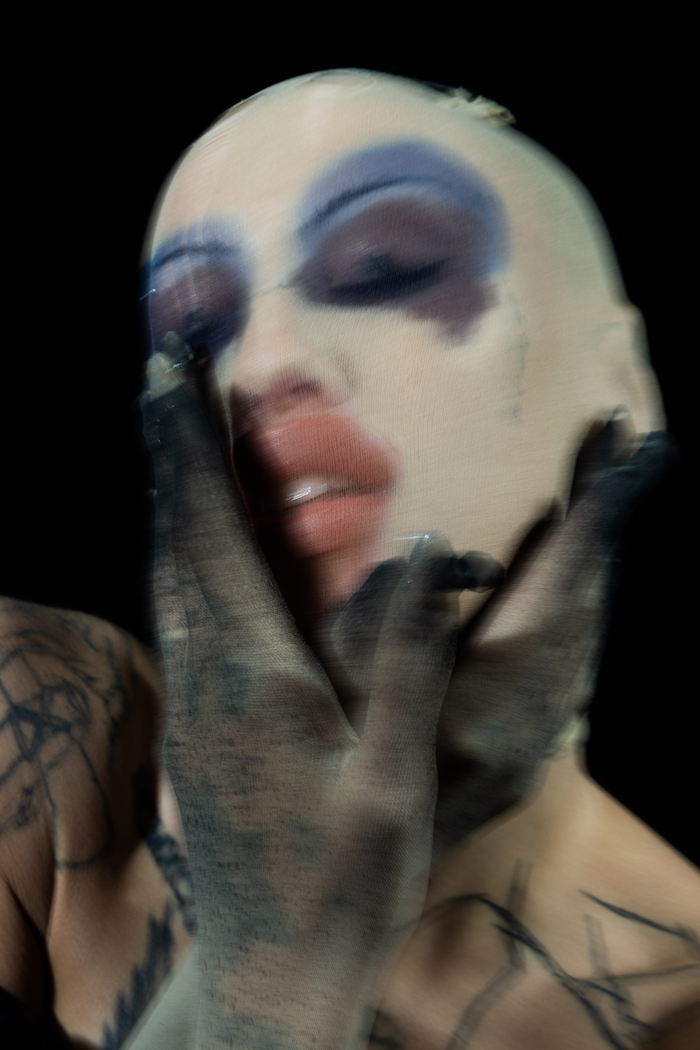
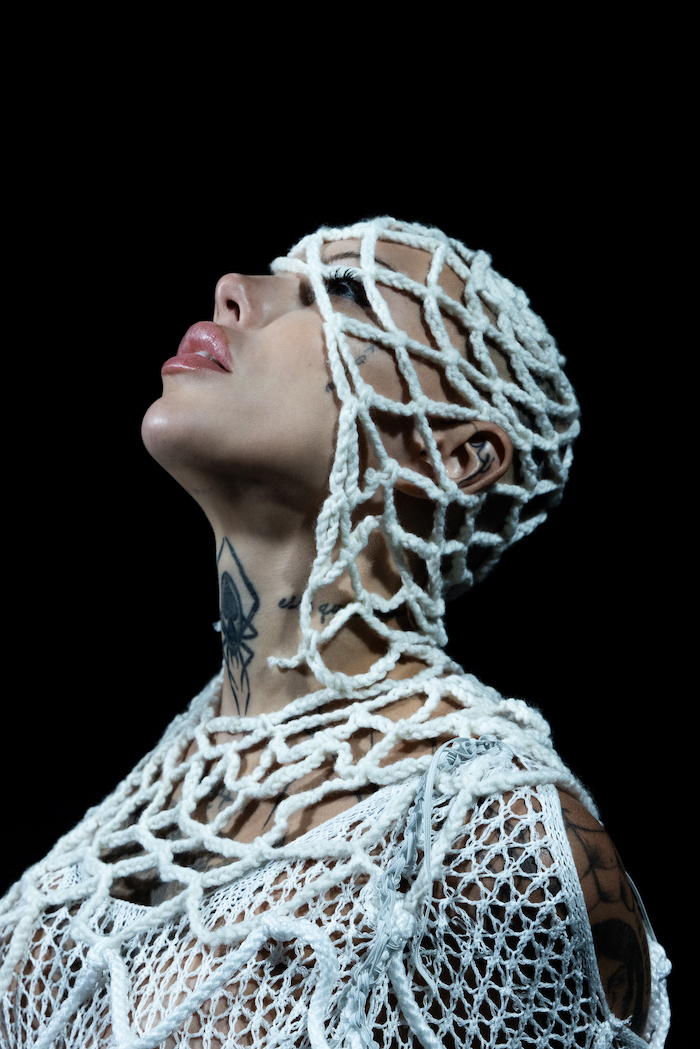
Has that softness and gentleness found its way into your lifestyle as well?
Absolutely. I think that it's important to be really thoughtful with everything that you're doing instead of getting caught up in the whirlwind of things. Life is so precious and I've always said that and felt that way, but I think that it's easy to fall back into the chaos of everything in life, especially as a musician. Taking a moment and writing this music from a quiet and thoughtful place is new for me.
It's almost harder to slow down and be intentional about life. It takes more thought. What do you think is the most unexpected song on this project and why?
I think that, honestly, the whole project is a little bit surprising just in terms of the delivery and the lyricism. I think the song 'When You're Not Mine’ is definitely very vulnerable as opposed to the badass, confident type of girl that I felt I was during my other projects.
It's cool that you found a balance with that as well. You can still be that badass person, but the softness and the gentleness can live with that as well.
It's important as an artist and as a person to be able to be who I want to be. It's just so human to have very different emotions and I think that it's important to express all of those emotions in my own ways.
And I'm sure that's very relatable for other people who feel like they have these conflicting things inside of them as well. I've seen your sound described in so many different ways, even in ways that may juxtapose each other. I've seen hyperpop fused with alt-rock, to a mixture of alt-pop and metal. I think that your sound kind of exists in this realm that doesn't have a label. It's its own thing. Do you feel empowered by existing in that liminal space and being able to tap into all different sounds and influences?
Giving myself the freedom to do all of this stuff is really important. I don't like feeling tied to a genre, but I do feel very inspired by other artists like Yung Lean or XXXTentacion, I just admire people who still let their personality shine through, even as the artist. It can all coexist together.
You've also gotten to work with some artists that you have looked up to and some people that you grew up listening to. Do you have any other artists that you look up to that would be like a dream collab at this moment?
I would love to work with the Deftones. And Death Grips as well. Or even a softer artist would be really cool, like Phoebe Bridgers. I'm very open to working with a lot of different people. But I've never really worked with anyone that I don't have a personal relationship with. I feel like making music is so vulnerable and I know that there's a lot of people out there. Not to say that this is wrong in any way, but there are a lot of people out there who are like, 'Oh, I want to work with this person, or I want to work with that person.' But music is such a vulnerable thing and so personal that, for me, it's hard to get in the studio with someone that you don't already know personally on that level.
Do you have a favorite track from this project and what's the story around it?
My favorite track from this project honestly changes pretty often. I have two songs, ‘Headspace’ and ‘Dizzy Spells,’ that are about learning to live life after losing someone really close to you. My best friend and someone that I have a past with romantically passed away in 2020 and that's ultimately what pushed me to start creating music and releasing it. Life is so short and his passing was so random and unexpected. That pushed me and these two songs are about that person. And, specifically, ‘Dizzy Spells,’ which is the song that I named the project after. That song is about learning to love someone again after losing someone that you loved.
Had that been a therapeutic process for you?
Music really saved me. I feel like I could have gone down a very different path if I didn't have music to slow me down. Writing is so cathartic and definitely makes me think through all of my emotions and rationalize everything. It helps me to understand myself better.
Your style is also very individualistic. I think it's just as abstract and esoteric as your sound. What's your approach to getting dressed? Who or what do you channel?
I honestly love just doing things that I haven't seen before. I like to remain very individual when it comes to my style, but I definitely feel as though I like to channel the darker, sexy side of who I am as a person. A lot of the time, I do wear things that wouldn't be necessarily deemed as sexy though [Laughs]. I don't know, I just have fun with it and I try not to limit myself. I like to be experimental and my stylist and I are extremely collaborative. I want to be a trendsetter in that way.


Going back to what we talked about earlier, when you think about the persona of Caroline and then the persona of Siiickbrain, do you feel like when you get dressed, those two personas converge stylistically?
I think that they definitely come together when it comes to style. I don't feel that there's a huge difference except that Caroline probably just wears sweats all the time.
I was going through previous interviews that you had done and there was a quote that stuck with me and I wanted to pull that into our conversation. You've said that you don't believe that good art requires pain. I agree. I think it's hard to understand as an artist who's maybe just first approaching their craft because it’s a common trope that we're taught. But you said that something you think that good art does require is truth. What is your truth right now, in this moment?
What characterizes me and my perspective currently is probably just stripping things down — even in life. I'm in this space where I just want to be very protective of myself.
Does it feel like a new chapter for you?
Yeah, I definitely feel like I'm growing up. I've been going through phases where I feel like I'm growing up, but I think that this phase is one that really shows through my music. I'm truly being more mindful and making decisions that could be scary, big changes. But ultimately it's what's best for me.


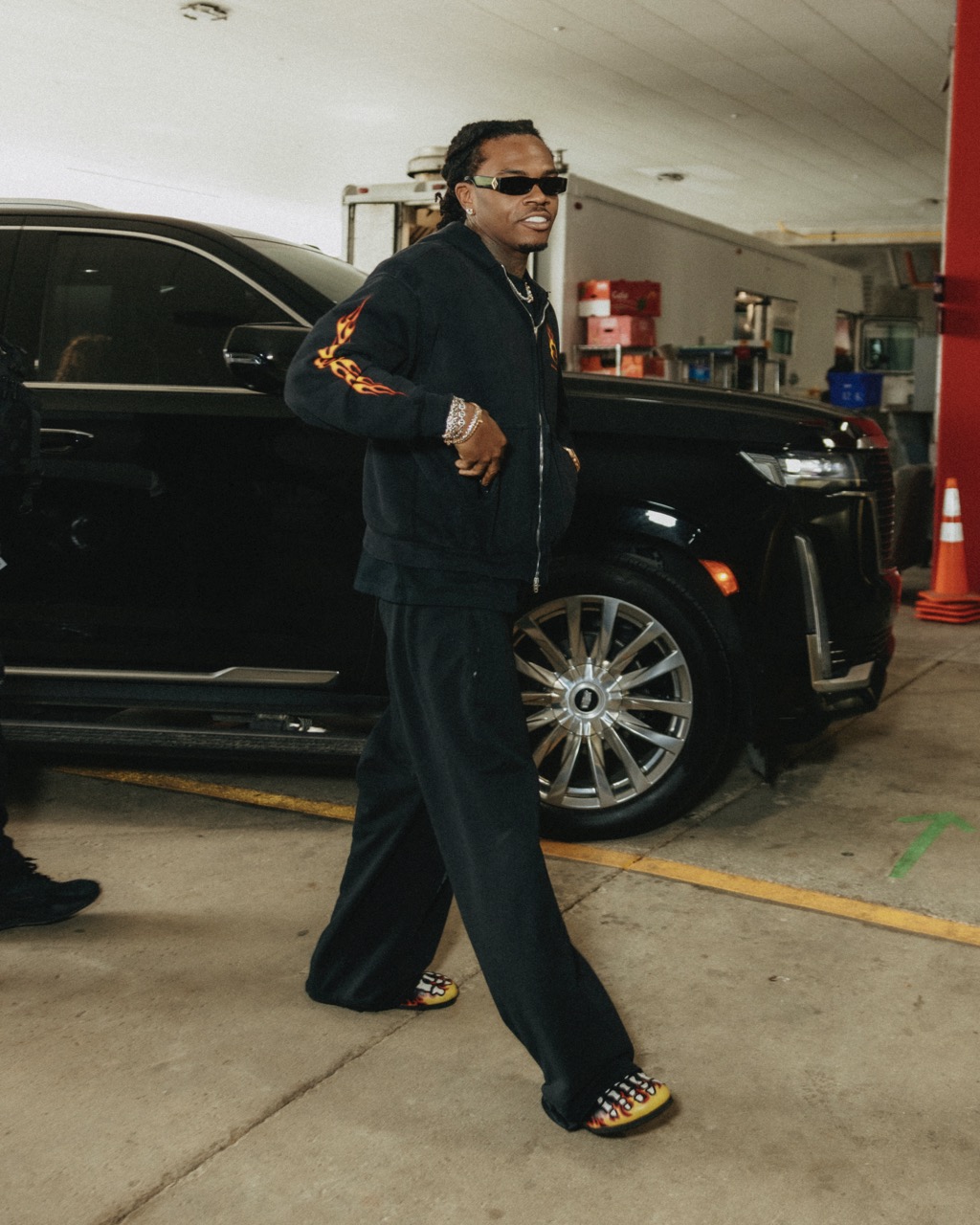
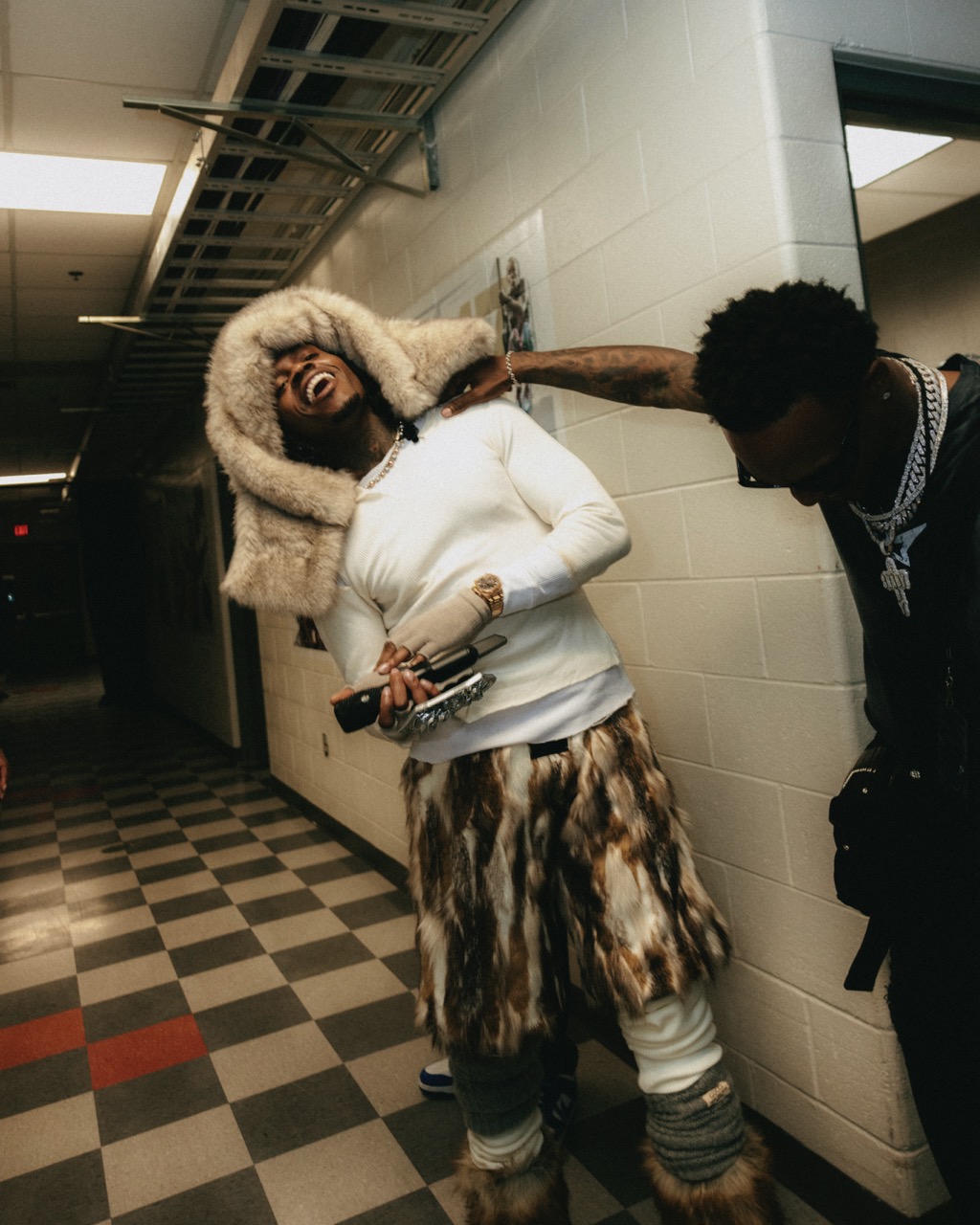
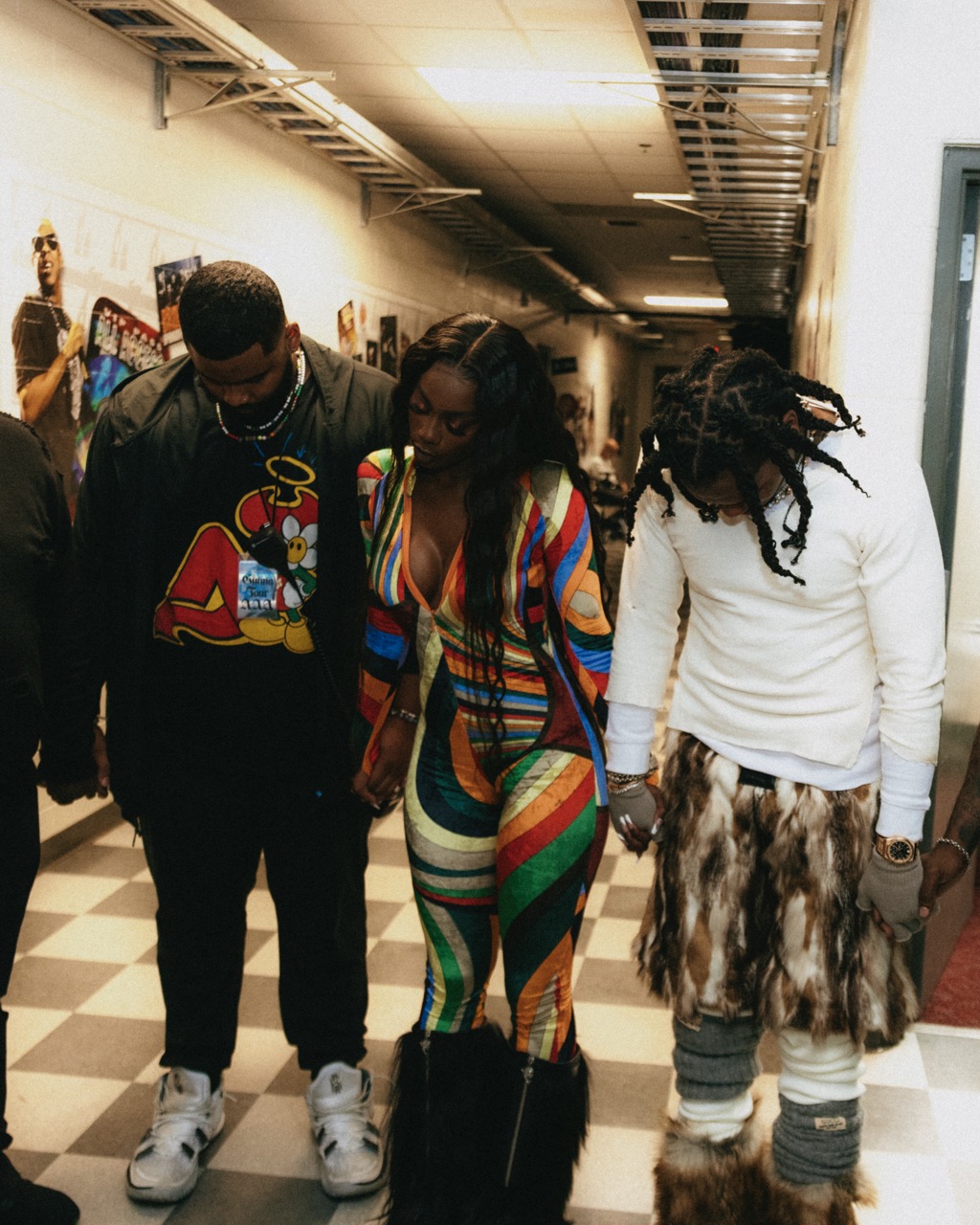
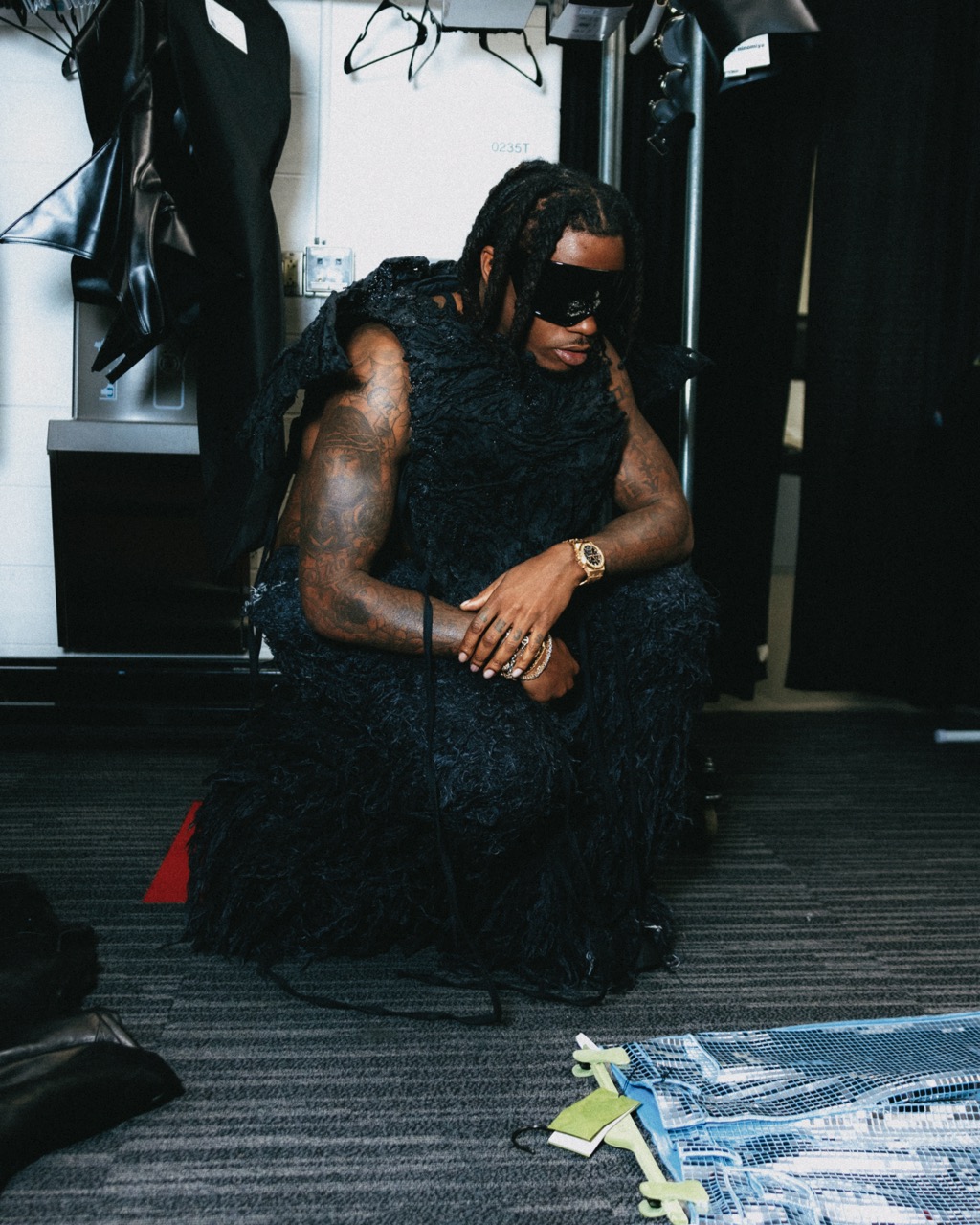
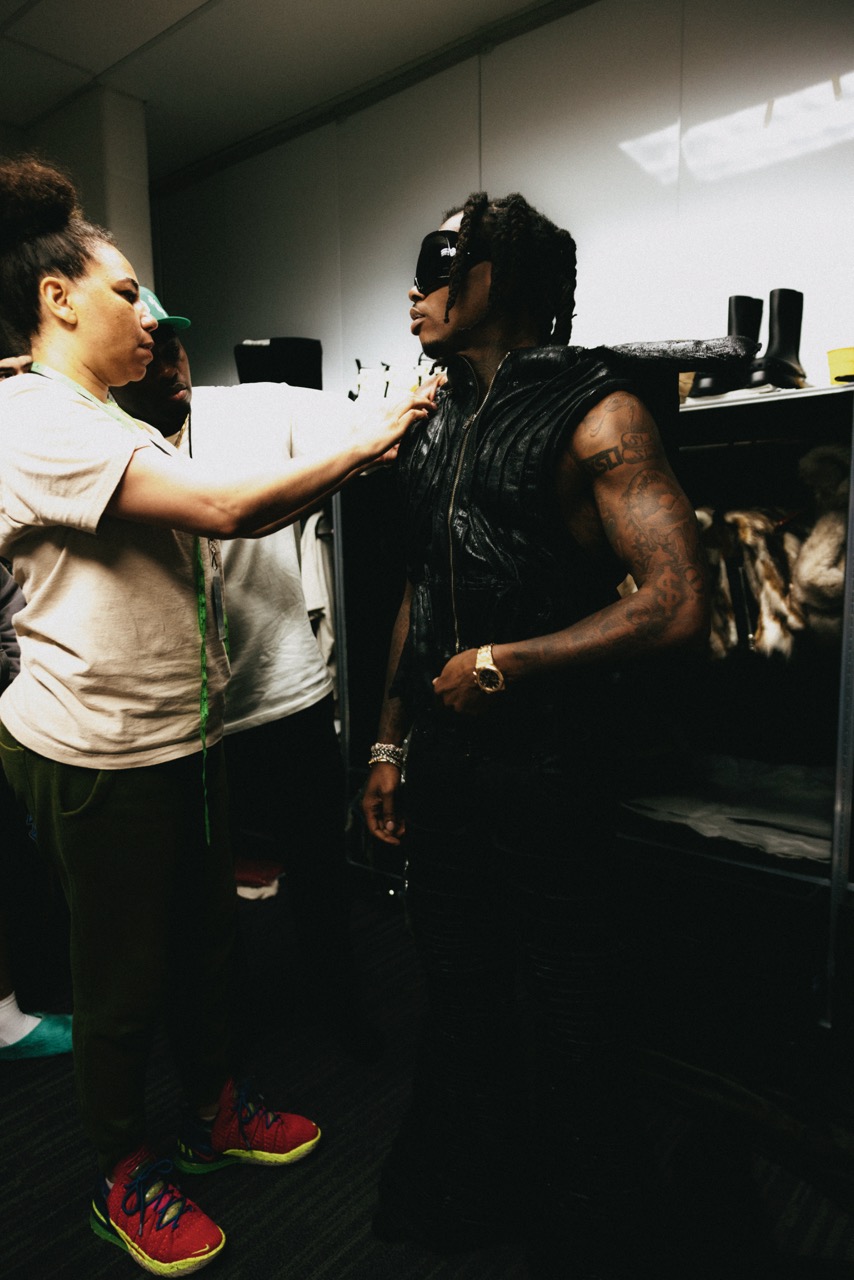
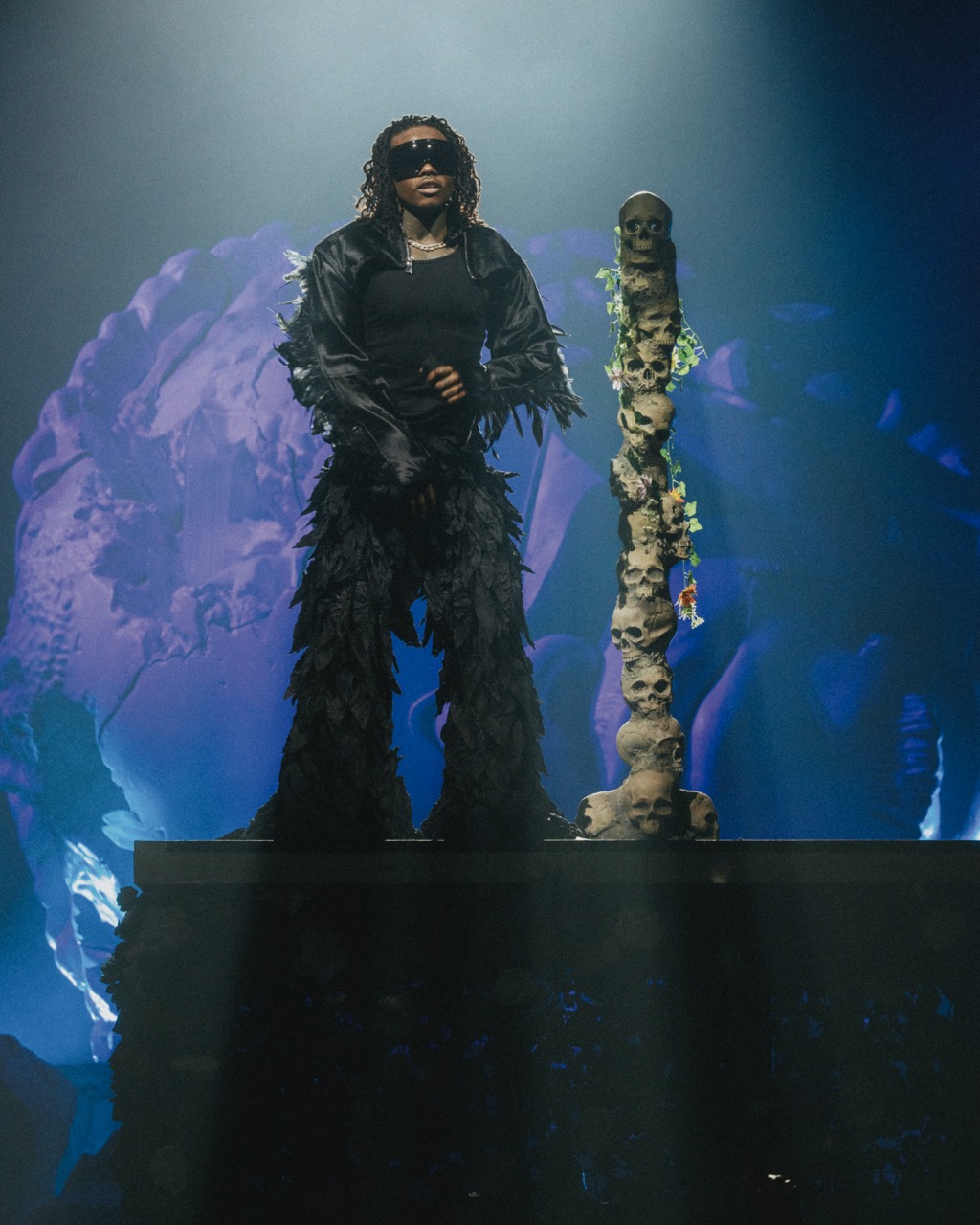
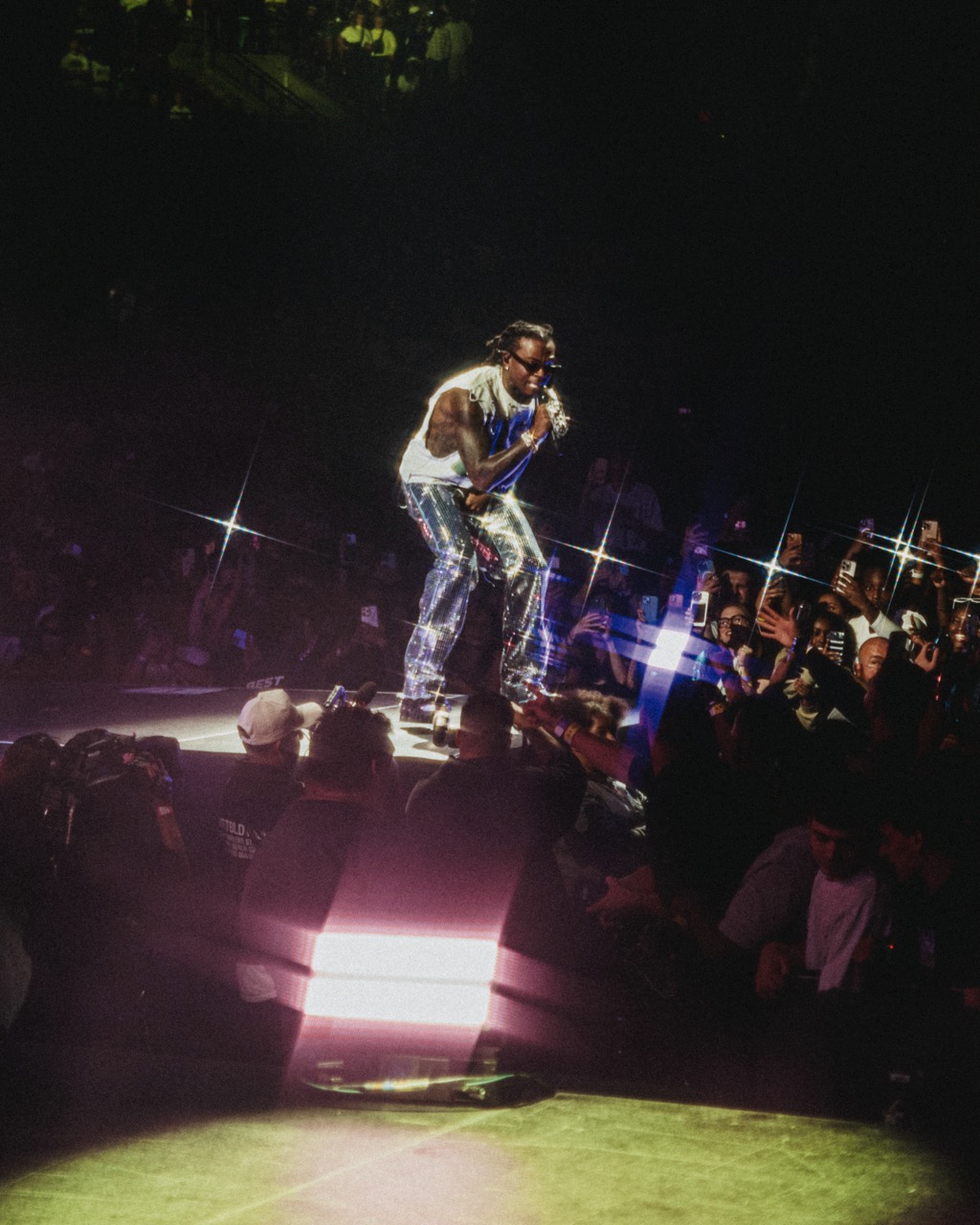

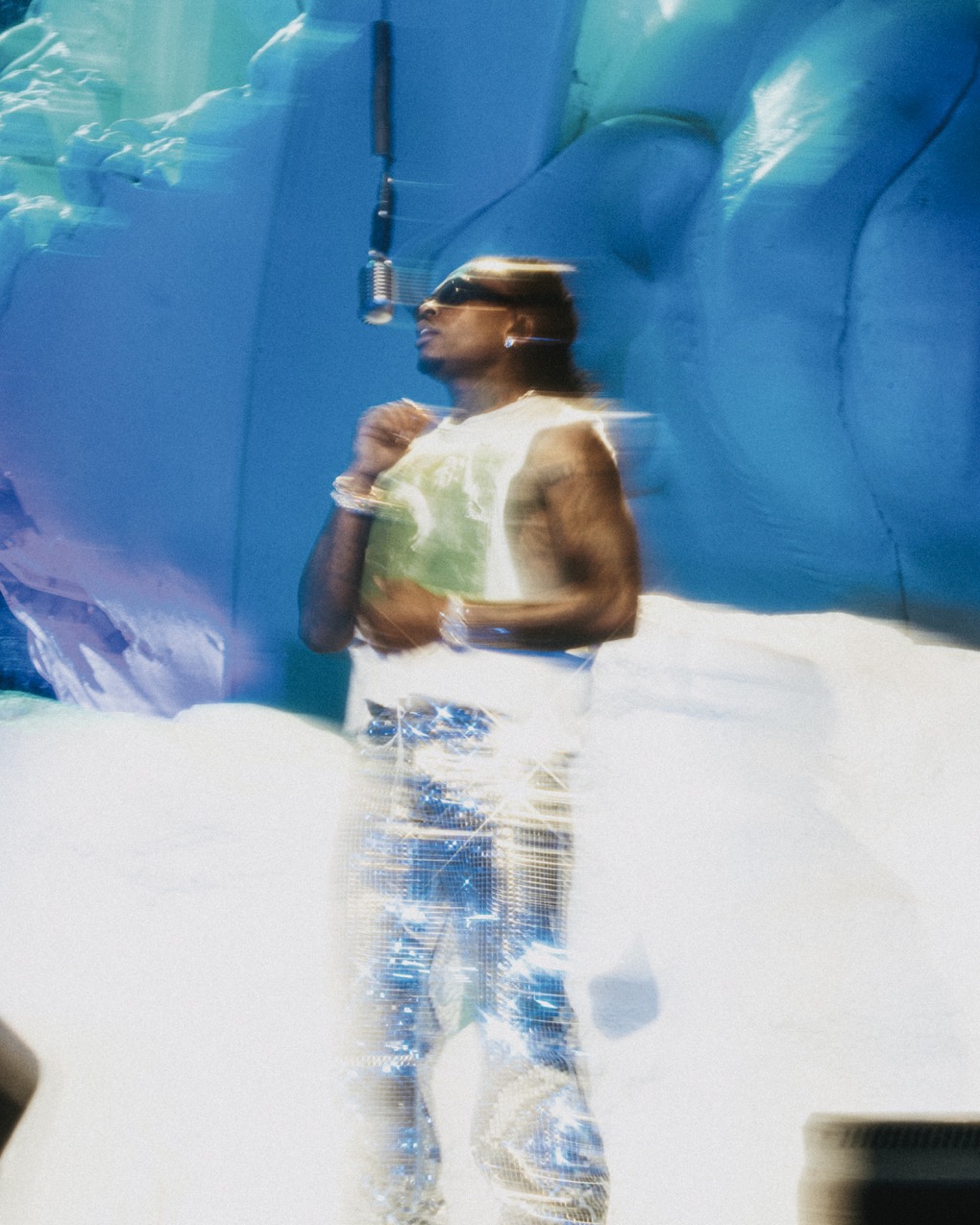
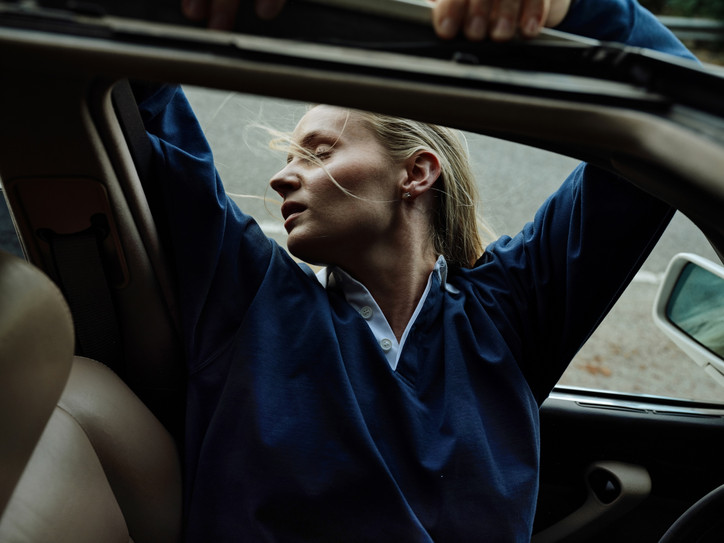
Over the last decade, Wilson’s music project has blossomed into quite an illustrious career, with her songs sampled by major artists such as Drake, John Mayer, and James Blake. But, what’s kept Charlotte Day Wilson going? She tells us it's her childlike ability to access her imagination and what she describes as a state of play.
“Not only in my career and in my life as a musician, but in the rest of my life, I’ve realized that I feel the most at peace when I’m doing things that I’ve always loved since childhood.” She remembers being a child and being able to easily delve into who she is at her core to create something new derived from the known. “I just remember being a child and being able to sit on a chair and completely transform myself and my surroundings, you know? I could go anywhere by imagining. I think we still have that — maybe we don’t have as much time every day to access that, but I’m lucky enough to be encouraged even as an adult and a songwriter to get to that place.”
“I’m in a pursuit of trying to not roll off my emotional edges. That was what happened to me in the middle of my career — I didn’t really feel much, and I think it’s because I was dealing with being a young adult but also the intensity of being thrusted into the public through my career. I was experiencing some insanely exciting highs but also some very dark lows. In all of that, I thought ‘Is this too much?’” Wilson has learned to undo all of that and has gotten back to a place of feeling purely. “It’s really fun to see what happens when you don’t criticize yourself.” This comes through clearly on Cyan Blue, with its dreamy sound that feels uniquely and exclusively hers.
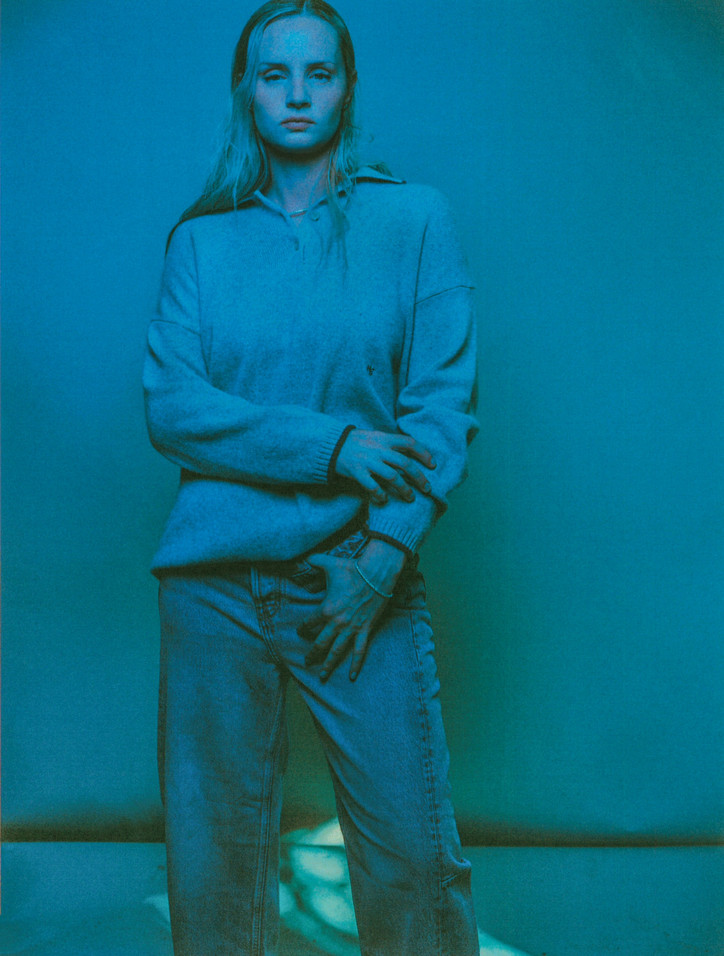
What started out as messing around in the studio with friend and co-producer Jack Rochon turned into, “Oh, are we making an album right now?” With Rochon’s help on the production side, Wilson had the freedom to create an album that she didn’t have to overthink. Where she typically would be playing all the instruments and handling all the production, she had more time to dive into lyricism and work on vocals for the record. “As much as most people know me as a singer, that’s not the thing I think of when I think of myself.” Wilson was put into piano lessons by her parents from an early age and learned classical technique before experimenting with her own sound. She tells me that this album felt like the first time she could focus on her vocals as the centerpiece, honing on that as her instrument — an exciting unlock for the songwriter who has largely self-produced her previous projects: 2016’s CDW, 2018’s Stone Woman, and her 2021 debut studio album Alpha. On this new record, she challenged herself to let go of previous processes and set a deadline for herself and Rochon, finishing the album in just a few months.
Wilson tells us that when making the record, “it felt like we would go into our playroom and get our toys [instruments] out and laugh and throw things at each other and throw ideas on the wall and let whatever came out stick on the wall and not feel like it needed to be anything different than how it came out naturally.” (I wish all jobs felt like this. Maybe she’s onto something.) With Cyan Blue, “first thought, best thought” was the approach, and Wilson and Rochon let themselves discover the outcomes of creating freely without criticizing themselves in the moment. The result is a deeply smooth 13-track album with Wilson’s ethereal, soulful vocals and expressive lyrics that feel distinctive but somehow don’t give away too much. Wilson writes songs in a way that doesn’t “edit the feeling” as she describes it — a mixture of deeply personal yet not overt. If there’s anything we can learn from Wilson and her creative process, it’s that our imagination never leaves us, but rather, it’s up to us to let go of inhibitions and tap into our childlike wonder. She’s definitely onto something.
Cyan Blue is out now on XL Recordings.